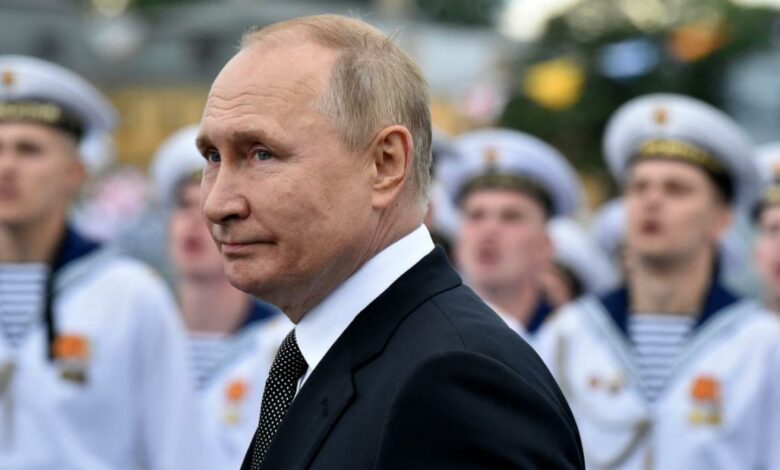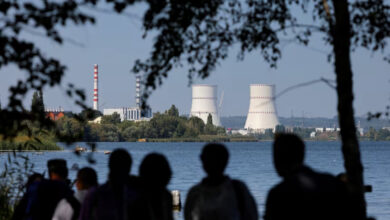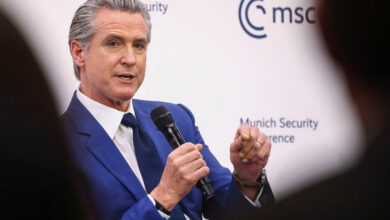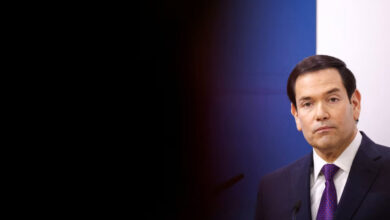
Truth, the saying goes, is the first casualty in war. Nowhere is that more true than in Russia, where the Kremlin has engaged in a campaign of false advertising to sell its invasion of Ukraine to the public.
Russian President Vladimir Putin cast the campaign as a “special military operation” – not a war – and told citizens that they could, essentially, forget about the conflict in Ukraine. Draftees, he promised falsely, would not fight, and military operations would be left to the professionals. And Putin’s Ministry of Defense delivered platitudes about progress on the battlefield, talking points quickly parroted by Russian state television.
But a curious shift is underway in Russia’s tightly controlled information space. Ukraine’s military has been making dramatic advances in a counteroffensive, making it increasingly difficult to conceal the Russian military’s losses. And Putin last month declared a partial military mobilization, sending a message to the general population that their leader was going all in Ukraine, and that sacrifices are now in order.
Against that background, Russia has seen some unusual public criticism of the top brass running Putin’s war. Within limits, of course: Criticizing the war itself or Russia’s commander-in-chief is off limits, but those responsible for carrying out the President’s orders are fair game.
In a recent interview with Russian arch-propagandist Vladimir Solovyov, the head of the defense committee in Russia’s State Duma demanded that officials cease lying and level with the Russian public.
“First of all, we need to stop lying,” said Andrei Kartopolov, a former colonel-general in the Russian military and a member of the pro-Kremlin United Russia party. “We brought this up many times before … But somehow it’s apparently not getting through to individual senior figures.”
Kartapolov complained that the Ministry of Defense was evading the truth about incidents such as Ukrainian cross-border strikes in Russian regions neighboring Ukraine.
“Our Russian city of Valuyki… is under constant fire,” he said. “We learn about this from all sorts of folks, from governors, Telegram channels, our war correspondents. But no one else. The reports from the Ministry of Defense do not change in substance. They say they destroyed 300 rockets, killed Nazis and so on. But people know. Our people are not stupid. But they don’t want to even tell part of the truth. This can lead to a loss of credibility.”
Valuyki is in Russia’s Belgorod region, near the border with Ukraine. Kyiv has generally adopted a neither-confirm-nor-deny stance when it comes to striking Russian targets across the border.
Some criticism has also come from Russian-appointed quislings who have been installed by Moscow to run occupied regions of Ukraine. In a recent four-minute rant on the messaging app Telegram, the Russian-appointed deputy leader of Ukraine’s occupied Kherson region, Kirill Stremousov, lambasted Russian military commanders for allowing “gaps” on the battlefield that had allowed the Ukrainian military to make advances in the region, which is illegally claimed by Russia.
“There is no need to somehow cast a shadow over the entire Ministry of Defense of the Russian Federation because of some, I do not say traitors, but incompetent commanders, who did not bother, and were not accountable, for the processes and gaps that exist today,” Stremousov said. “Indeed, many say that the Minister of Defense [Sergei Shoigu], who allowed this situation to happen, could, as an officer, shoot himself. But, you know, the word officer is an unfamiliar word for many.”
A provocative statement, perhaps – Stremousov might perhaps be mindful of the fact that troublesome leaders of Russian-backed separatist entities have a habit of dying violently – but some of this criticism is not new. Just weeks after Putin launched the full-scale invasion of Ukraine, one of his key domestic enforcers, Chechen strongman Ramzan Kadyrov, urged the Russian military to expand its campaign, implying that Moscow’s approach had not been brutal enough.
But after Russia’s retreat from the strategic Ukrainian city of Lyman, Kadyrov has been a lot less shy about naming names when it comes to blaming Russian commanders.
Writing on Telegram, Kadyrov personally blamed Colonel-General Aleksandr Lapin, the commander of Russia’s Central Military District, for the debacle, accusing him of moving his headquarters away from his subordinates and failing to adequately provide for his troops.
“It’s not a shame that Lapin is mediocre, but the fact that he is covered at the top by the leaders in the General Staff,” said Kadyrov.
The US-based think tank the Institute for the Study of War noted that Russian battlefield setbacks, coupled with the unease in Russian society over mobilization, “was fundamentally changing the Russian information space.” That has included robust criticism not just from hawkish men of power such as Kadyrov, but from pro-war milbloggers who have often provided a granular picture of battlefield realities for Russian forces.
“The Russian information space has significantly deviated from the narratives preferred by the Kremlin and the Russian Ministry of Defense (MoD) that things are generally under control,” ISW noted in its recent analysis.
“The current onslaught of criticism and reporting of operational military details by the Kremlin’s propagandists has come to resemble the milblogger discourse over the past week. The Kremlin narrative had focused on general statements of progress and avoided detailed discussions of current military operations. The Kremlin had never openly recognized a major failure in the war prior to its devastating loss in Kharkiv Oblast, which prompted the partial reserve mobilization.”
One of the central features of Putinism is a fetish for World War II, known in Russia as the Great Patriotic War. And those in Russia’s party of war often speak admiringly of the brutal tactics employed by the Red Army to fight Hitler’s Wehrmacht, including the use of punishment battalions – sending soldiers accused of desertion, cowardice or wavering against German positions as cannon fodder – and the use of summary execution to halt unauthorized retreats.
Kadyrov – who recently announced that he had been promoted by Putin to the rank of colonel general – has been one of the most prominent voices arguing for the draconian methods of the past. He recently said in another Telegram post that, if he had his way, he would give the government extraordinary wartime powers in Russia.
“Yes, if it were my will, I would declare martial law throughout the country and use any weapon, because today we are at war with the whole NATO bloc,” Kadyrov said in a post that also seemed to echo Putin’s not-so-subtle threats that Russia might contemplate the use of nuclear weapons.
And that’s the worrying thing. In Russia’s bellicose information space, the talk isn’t about ending a horrific and wasteful war: It’s about correcting the mistakes that forced a Russian retreat, reinforcing discipline, and doubling down in Ukraine.




